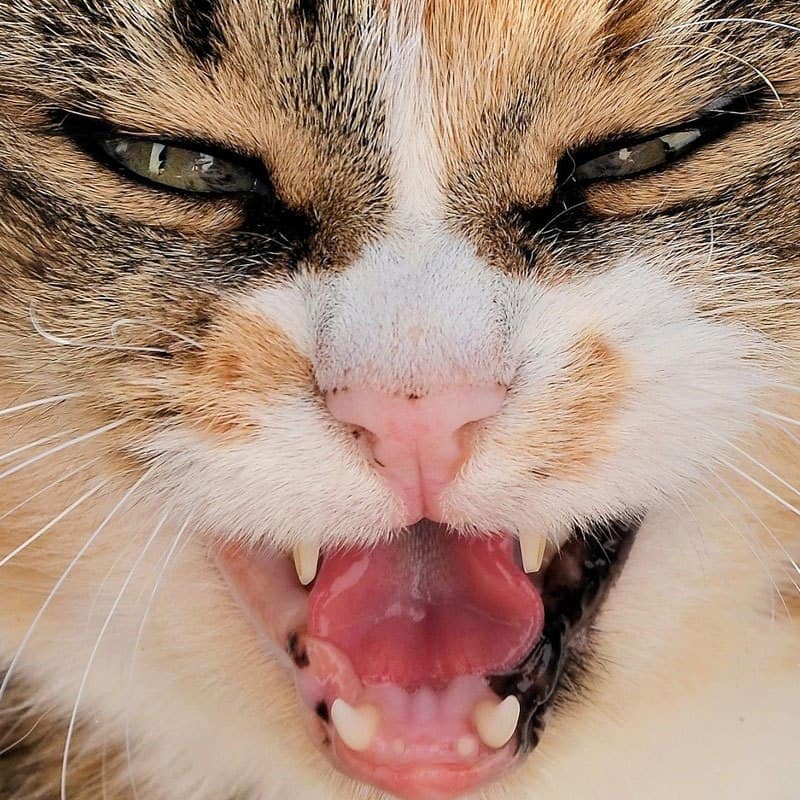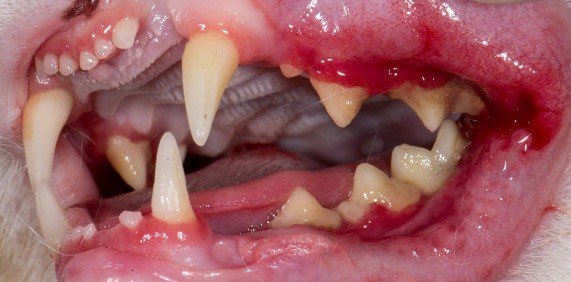
For Feline Stomatitis coconut oil is used for supplemental treatment for this common cat disease. Also known as Feline Gingivostomatitis, is a common condition in cats of any age.
It’s a painful condition affecting the mucous membranes in the mouth. When left unchecked, it can cause your cat to stop eating, which can cause further complications for your cat’s health.
If you suspect your cat is suffering from Stomatitis, here are some of its causes and treatment options.
Causes of Feline Stomatitis
No definitive reason has been discovered that confirms the cause of Feline Stomatitis, but most researchers agree that the primary cause is related to the cat’s immune system. Primarily, it occurs when the feline’s immune system overreacts and attacks bacteria present in the mouth. The oral tissues in the mouth become vulnerable to infection. Bacteria can thrive and, in turn, can cause Stomatitis.
Symptoms

Of all feline medical conditions out there, feline Stomatitis will manifest noticeable signs of pain. If you’ve lived with cats, you know that they don’t freely express pain, but Stomatitis can be very painful. Your cat will express their discomfort by yawning frequently and making uncharacteristic sounds. When stomatitis is at an advanced stage, your cat may approach its food, smell it, and leave without touching a bite.
Other indicators include frequent pawing at their face, drooling (usually with their tongue out), weight loss, bad breath, noticeable difficulty swallowing, and swollen or red gums. Your cat may also be reluctant to groom themselves because of the discomfort in their mouth.
Diagnosing Feline Stomatitis
When you see these symptoms in your cat, the first step is to call your vet to make an appointment. The vet will start the diagnosis process by examining your cat’s medical history. They will also physically examine the cat’s mouth to determine the degree of stomatitis infection.
Depending on the diagnosis, the vet may decide to sedate your cat to more fully examine your cat’s mouth. After examining your cat’s mouth, the vet will know the degree of infection.
Determining the proper method of treatment usually requires further testing, which generally includes tests to:
- Detect any viruses
- Identify any additional diseases
- Determine if there are other immune-related viruses
- Detect oral/dental disorders
Treatment of Gingivostomatitis
After diagnosis, the vet will start the treatment process. The vet will administer an anti-pain and anti-inflammatory drug that is an immunosuppressant or steroid. Antibiotics may also be recommended.
Although therapeutic treatment for feline Stomatitis is effective, in many cases, it’s considered a temporary option. The vet will likely suggest dental removals if the condition is advanced. Initial research shows that bacterial plaque is the root cause of Stomatitis. And the disease will remain in the cat’s mouth as long as the teeth are intact. Dental extraction is commonly recommended in advanced cases.
Recovery
After treatment, the vet will recommend an appropriate recovery routine for your cat. Your vet will prescribe pain-suppressant drugs until its condition improves. And in cases where your cat has had teeth removed, they will suggest feeding your cat wet food only.
Daily cleaning and disinfection of your cat’s gums is essential to keep further infection at bay. With proper treatment and care, your cat should be back to usual self in 3 to 4 weeks.
Feline Stomatitis Coconut Oil Treatment
One of the suggestions you may see is for feline stomatitis coconut oil. Coconut oil is excellent for a cat recovering from Stomatitis. It can also help with itchiness, dry skin, and maintenance of its coat since it cannot lick it at this time.
Coconut oil can:
- Help your cat’s immune system.
- Minimize bad breath.
- Reduce inflammation.
- Reduce hairballs.
How to Feed Coconut Oil to Your Cat
You can mix coconut oil with cat food, but it’s easier for a recovering cat to simply lick the coconut oil.
If your cat has skin problems, you can apply coconut oil to the affected areas. Coconut oil helps to soothe the affected skin areas and speed up the healing process.

